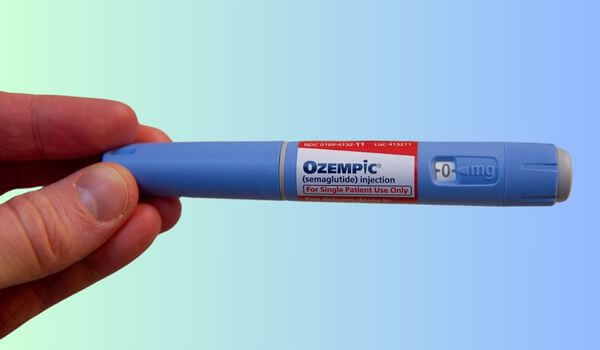Seroquel (
generic name: quetiapine) is a medication primarily used to treat mental health conditions such as
schizophrenia,
bipolar disorder, and, in some cases, major depressive disorder. It modulates neurotransmitter activity in the brain, particularly by antagonizing serotonin (5-HT2) and dopamine (D2) receptors, which help balance mood and thought processes.
The main conditions treated are:
- Schizophrenia, which is a mental disorder characterized by distorted thinking, perceptions, emotions, language, sense of self, and behavior. Symptoms may include hallucinations, delusions, disorganized speech, and impaired cognitive ability.
- Bipolar disorder, a condition marked by extreme mood swings, including emotional highs (mania or hypomania) and lows (depression). Seroquel is effective in treating both manic and depressive episodes associated with bipolar disorder.
- Major Depressive Disorder (MDD). In some instances, Seroquel is used as an adjunct treatment for MDD, especially when patients do not respond adequately to antidepressant monotherapy.
Seroquel belongs to the class of
atypical antipsychotics, also known as
second-generation antipsychotics. These medications are distinguished from typical antipsychotics by their reduced propensity to cause
extrapyramidal side effects and their broader spectrum of action on various neurotransmitter receptors.
“Extrapyramidal side effects” refers to a group of movement-related side effects that can occur when taking certain medications, most commonly antipsychotic drugs, and manifest as involuntary muscle contractions, muscle stiffness, tremors, and other abnormal movements, essentially affecting the body’s motor control system due to disruption of the extrapyramidal system in the brain
For more detailed information, refer to the
Mayo Clinic’s page on Quetiapine.
Quetiapine impacts neurotransmitters related to serotonin and dopamine in the brain that transmit messages between nerve cells at their connection points with other neurons. This communication process is
essential for mood regulation, information processing, and response to surroundings.
Serotonin and dopamine regulate mood and how people perceive the world around them. In mental health disorders like schizophrenia and bipolar disorder, there may be an imbalance in these neurotransmitters. For instance, schizophrenia often involves high levels of dopamine activity, leading to symptoms like hallucinations and delusions. In Bipolar disorder, abnormal fluctuations in serotonin and dopamine levels can result in mood swings from highs to lows.
By attaching to these receptors, Seroquel can lessen the impact of serotonin and dopamine. This action doesn’t completely block these neurotransmitters. Rather, it
helps regulate their function, promoting mood stability and reducing symptoms. Essentially, Seroquel aids in restoring a chemical balance in the brain and so
eases psychotic symptoms and enables patients to better manage their conditions.
Dosage
Always follow the prescribing physician’s instructions regarding the initial regimen and any dosage adjustments.
The dosage of Seroquel varies based on the condition being treated, patient age, and individual response to therapy. It is typically administered orally, with or without food.
- For schizophrenia, the initial dose may start at 25 mg twice daily, gradually increasing based on clinical response.
- In bipolar disorder, dosing schedules differ for manic and depressive episodes, often starting at 50 mg to 100 mg per day and adjusted accordingly.
- For major depressive disorder, Seroquel is usually used as an adjunct therapy, with dosing tailored to the patient’s needs.
If a dose is missed, it should be taken as soon as remembered. If it is close to the time for the next dose, skip the missed dose and resume the regular schedule. Do not double-dose to make up for a missed dose,.
Do not drink grapefruit juice during treatment since it may affect the way Seroquel works.
If an extra dose of Seroquel is accidentally taken or a child swallows a dose by mistake, it’s essential to see a doctor immediately or go to the nearest hospital emergency room and take the medicine packaging with. The symptoms can include tiredness, weakness, dizziness, and rapid heartbeats.
If a scheduled dose is missed, do not try to make up for it by taking an extra one. Take the missed dose as soon as it is noticed and continue with the next one at the scheduled time. Abruptly discontinuing treatment may lead to symptoms like trouble sleeping, nausea, headaches, upset stomach, vomiting, dizziness and irritability. Doctors usually recommend tapering off before stopping the treatment.
Storage
tore Seroquel tablets at room temperature, away from moisture and heat. Keep the medication in its original packaging until use. Ensure it is inaccessible to children and pets. Do not store it in the bathroom or kitchen, as humidity can affect the medication’s stability. Proper storage maintains the drug’s efficacy throughout its shelf life.
For more information, read our article on drug storage.
Frequently Asked Questions About Seroquel
Can Seroquel be used for sleep disorders?
While Seroquel has sedative effects, it is not approved for treating primary sleep disorders. Using it solely as a sleep aid is generally not recommended due to potential side effects. Consult a healthcare provider for appropriate treatments for sleep-related issues.
Is weight gain common with Seroquel?
Yes, weight gain is a reported side effect of Seroquel. Patients should monitor their weight and discuss any concerns with their healthcare provider, who may offer guidance on managing this effect.
Can Seroquel cause diabetes?
Seroquel may increase blood sugar levels, potentially leading to diabetes in some individuals. Regular monitoring of blood glucose is advisable, especially for those with risk factors for diabetes.
Can I drink alcohol while taking Seroquel?
It is generally not recommended to drink alcohol while taking Seroquel. Alcohol can increase the sedative effects of the medication, leading to excessive drowsiness, dizziness, and impaired coordination. Combining alcohol with Seroquel may also increase the risk of other side effects. It is best to consult your healthcare provider for personalized advice.
How long does it take for Seroquel to work?
The effects of Seroquel can vary depending on the condition being treated. Some symptoms, such as agitation or difficulty sleeping, may improve within a few days. However, for conditions like schizophrenia or bipolar disorder, it may take several weeks to notice the full benefits. It is important to continue taking the medication as prescribed and attend follow-ups with your healthcare provider.
Can Seroquel be stopped suddenly?
Seroquel should not be stopped suddenly without consulting a healthcare provider. Abrupt discontinuation may lead to withdrawal symptoms, including nausea, insomnia, headache, and the return of symptoms the medication was treating. If discontinuation is necessary, your doctor will likely recommend a gradual tapering schedule to minimize risks.
Is Seroquel addictive?
Seroquel is not considered addictive in the traditional sense, as it does not produce euphoria or cravings. However, some individuals may experience dependence if it is taken for extended periods, particularly for off-label uses like sleep. It is essential to use the medication only as prescribed and discuss any concerns with your healthcare provider.
Can Seroquel help with sleep?
Seroquel has sedative effects and is sometimes prescribed
off-label to help with sleep disorders. However, its use for this purpose is not FDA-approved and may come with potential side effects, such as daytime drowsiness and weight gain. A healthcare provider should evaluate the risks and benefits before using Seroquel for sleep-related issues.
This text is for informational purposes only. Please consult your doctor or pharmacist before using any medication.
Please contact a doctor right away if any of the following symptoms are experienced after taking Seroquel;
- A mixture of fever, sudden muscle rigidity, sweating or decreased consciousness (known as neuroleptic malignant syndrome)
- Unintentional movements, particularly in the face and tongue.
- Feeling dizzy or excessively drowsy which could raise the risk of falls in individuals.
- Seizures.
- Prolonged and painful erection.
- Experiencing a fast and irregular heartbeat or palpitations
- Experiencing breathing difficulties, chest pain or unexplained fatigue even at rest.
Children, adolescents and young adults up to the age of 25 being treated with Seroquel are at risk of suicidal thoughts that may surface within the first few weeks as the medication takes effect. This risk is also high in adults being treated for depression. If there are ever any feelings like self-harm, reach out to a doctor or head to a hospital immediately.
Severe skin reactions have been occasionally reported along with the use of this medication. These reactions typically show symptoms such as a rash with blisters and peeling skin around the mouth, nose, eyes and genital area. If any of these are experienced, stop taking Seroquel immediately and contact a doctor or seek emergency medical help right away.
Patients taking Seroquel may notice weight gain. It is recommended to monitor weight in consultation with a doctor.
Seroquel is prescribed to treat several mental or mood disorders, including schizophrenia, bipolar disorder, and sudden episodes of mania or depression associated with bipolar disorder.
- Schizophrenia is a condition in which people may imagine that they hear or feel things that do not exist, have beliefs in things that are not true or feel unduly suspicious, have feelings of anxiety, confusion,
guilt, tension or depression.
- Mania results in episodes where a person feels excited, elated, agitated, enthusiastic, aggressive or hyperactive or experiences a decline in a sense of judgment. Manic sessions may include a reduced need for sleep and the loss of touch with reality.
- Bipolar disorder is a situation in which a person experiences episodes of mood swings ranging from depressive lows to manic highs.
The exact causes of these conditions are not known, but it is believed to be a combination of genetics, environment and altered brain structure or brain chemistry. There is no cure at the moment, and appropriate medication and psychotherapy are the only possible steps that can be taken to reduce the symptoms to manageable levels.
The treating doctor may continue treatment with Seroquel even if symptoms appear to be in remission.













